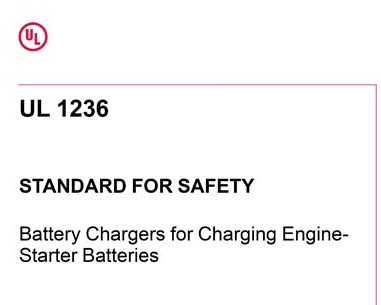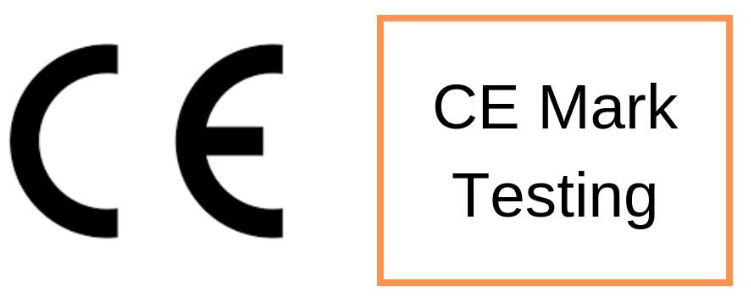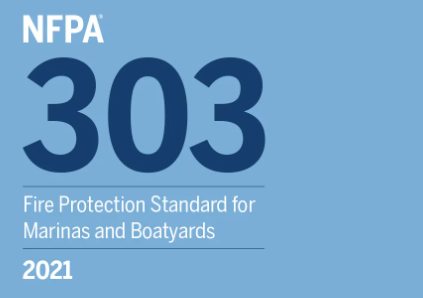To expand your news reach, consider advertising with our media partner, Patch Media, at https://heypapipromotionsmedia.town.news/. Patch is a nationwide news network comprising over 1,000 hyperlocal websites dedicated to community news across the United States. For press release distribution services, please call or visit https://heypapipromotions.com/advertise.
What safety certifications or standards should a portable battery charger meet to ensure reliability and compliance with marine safety regulations?
Ensuring that a portable battery charger meets specific safety certifications and standards is crucial for reliability and compliance with marine safety regulations. Below are some key certifications and standards that a quality portable battery charger for marine use should adhere to:
UL 1236, ISO 8846, ISO 10133, ABYC A-31, CE Marking, USCG Title 33, Chapter I, Subchapter J, NMMA Certification, IEC 60335, SOLAS,NFPA 303
Here are the details of each certifications:
UL 1236 - Battery Chargers for Charging Engine-Starter Batteries: Underwriters Laboratories (UL) is a globally recognized organization that tests and certifies electrical products for safety. UL 1236 specifically addresses battery chargers used for charging engine-starter batteries. Compliance with this standard ensures that the charger meets safety criteria essential for marine environments. UL 1236 plays a vital role in establishing a benchmark for the safety and performance of battery chargers intended for engine-starter batteries. By adhering to this standard, manufacturers contribute to the creation of reliable and safe charging solutions for vehicles, boats, and other applications requiring engine-starter batteries. Consumers can look for the UL mark on battery chargers as an assurance of compliance with this safety standard.
ISO 8846 - Ignition Protection: ISO 8846 is an international standard that sets out requirements for preventing ignition hazards in electrical devices, including battery chargers, used in the marine environment. This standard is critical for minimizing the risk of sparks or electrical arcs that could lead to a fire on boats, ensuring the safety of both the vessel and its occupants. ISO 8846 plays a pivotal role in enhancing safety on boats by addressing the ignition protection requirements of electrical devices. For battery chargers used in the marine environment, compliance with this standard is essential to mitigate the risk of fires caused by electrical sources. Manufacturers, boat builders, and boat owners should be aware of and adhere to ISO 8846 to ensure the safe and reliable operation of electrical equipment on marine vessels.
ISO 10133 - Small Craft - Electrical Systems - Extra-Low-Voltage DC Installations: ISO 10133 provides guidelines for the design and installation of electrical systems in small craft, including vessels in the marine sector. This standard addresses extra-low-voltage DC installations, ensuring that battery chargers meet safety requirements for use in various types of marine vessels. ISO 10133 plays a vital role in establishing guidelines for the design and installation of extra-low-voltage DC electrical systems on small craft. By addressing safety, environmental factors, and system integration, the standard contributes to the overall reliability and performance of electrical systems in the challenging marine environment. Manufacturers, marine professionals, and regulatory bodies benefit from a globally recognized framework that prioritizes safety and compliance in the maritime industry.
ABYC A-31 - Battery Chargers and Inverters: The American Boat and Yacht Council (ABYC) develops industry standards for the design, construction, and maintenance of boats. Standard A-31 specifically focuses on battery chargers and inverters for marine applications. Compliance with ABYC standards is widely accepted and respected in the marine industry, ensuring a high level of safety and performance. Adhering to ABYC A-31 ensures that battery chargers and inverters used in marine applications meet established industry standards for safety, performance, and reliability. Boat owners, marine electricians, and manufacturers alike benefit from these guidelines, contributing to a safer and more efficient marine electrical system.
CE Marking - Conformité Européenne: The CE marking is a certification mark indicating conformity with European Union (EU) product safety directives. If a portable battery charger is intended for sale in the EU, it must bear the CE marking. This ensures that the product meets essential safety requirements and environmental standards applicable within the EU. The CE marking is a vital symbol for manufacturers, indicating their commitment to meeting EU standards and regulations. It facilitates the free movement of goods within the EEA and provides assurance to consumers that products bearing the CE marking comply with relevant safety and environmental requirements.
USCG Title 33, Chapter I, Subchapter J - Electrical Engineering: The United States Coast Guard (USCG) outlines safety regulations for various aspects of maritime operations, including electrical engineering on vessels. Subchapter J of Title 33 addresses electrical engineering requirements, and compliance with these regulations is crucial for ensuring safe and reliable battery charger usage in marine environments. Understanding and adhering to the regulations outlined in USCG Title 33, Chapter I, Subchapter J is crucial for maintaining a safe and reliable electrical environment on vessels. Vessel owners, operators, and marine electricians must stay informed about these regulations to ensure compliance and enhance maritime safety.
NMMA Certification (National Marine Manufacturers Association): The NMMA provides certification for marine products, including battery chargers. NMMA certification indicates that the product meets industry standards for performance, safety, and environmental impact. It is a mark of quality and adherence to recognized marine industry norms. NMMA Certification for portable battery chargers in the marine industry is a comprehensive process that assesses the product's adherence to industry standards, safety requirements, and environmental considerations. For consumers and professionals in the marine sector, choosing NMMA Certified products contributes to a culture of safety, quality, and environmental responsibility in recreational boating.
IEC 60335 - Safety of Household and Similar Electrical Appliances: The International Electrotechnical Commission (IEC) 60335 standard addresses the safety of household and similar electrical appliances. While primarily designed for household use, aspects of this standard may be relevant to portable battery chargers. Manufacturers may reference this standard to ensure additional safety considerations in the design and construction of their products. For manufacturers of portable battery chargers, referencing IEC 60335 can contribute to the development of products that meet high safety standards, even if these chargers are not explicitly designed for household use. It underscores a commitment to user safety and adherence to established industry norms.
SOLAS (Safety of Life at Sea) Regulations: SOLAS is an international maritime safety treaty that sets minimum safety standards for ships. While SOLAS doesn't specifically address battery chargers, adherence to safety standards within the SOLAS framework is essential for overall marine safety. Vessels engaged in international voyages must comply with SOLAS regulations. While SOLAS may not explicitly address portable battery chargers, its overarching principles and regulations related to electrical systems contribute significantly to the safety of maritime operations. Manufacturers, ship operators, and regulatory authorities work collaboratively to ensure that electrical equipment, including battery chargers, meets the high safety standards set by SOLAS, enhancing the overall safety and well-being of those at sea.
NFPA 303 - Fire Protection Standard for Marinas and Boatyards: The National Fire Protection Association (NFPA) 303 standard provides guidelines for fire protection in marinas and boatyards. While not specific to battery chargers, this standard may have implications for the use of electrical devices, including chargers, in these settings. Adherence to NFPA 303 contributes to overall fire safety in marine environments. NFPA 303 plays a pivotal role in establishing fire safety measures tailored to the unique challenges posed by marinas and boatyards. By addressing facility design, electrical systems, fueling operations, emergency response planning, and more, this standard contributes to the creation of safer environments for maritime activities. Compliance with NFPA 303 is a proactive step toward mitigating fire risks and fostering a culture of safety in the marine industry.
Before purchasing a portable battery charger for marine use, it is advisable to check the product's documentation and packaging for relevant certifications. Additionally, consulting with marine industry experts or regulatory authorities can provide further guidance on compliance with safety standards.
View more suppliers:
Manufacturing and Machining services
Physiotherapy Management Device Supplier



Comments